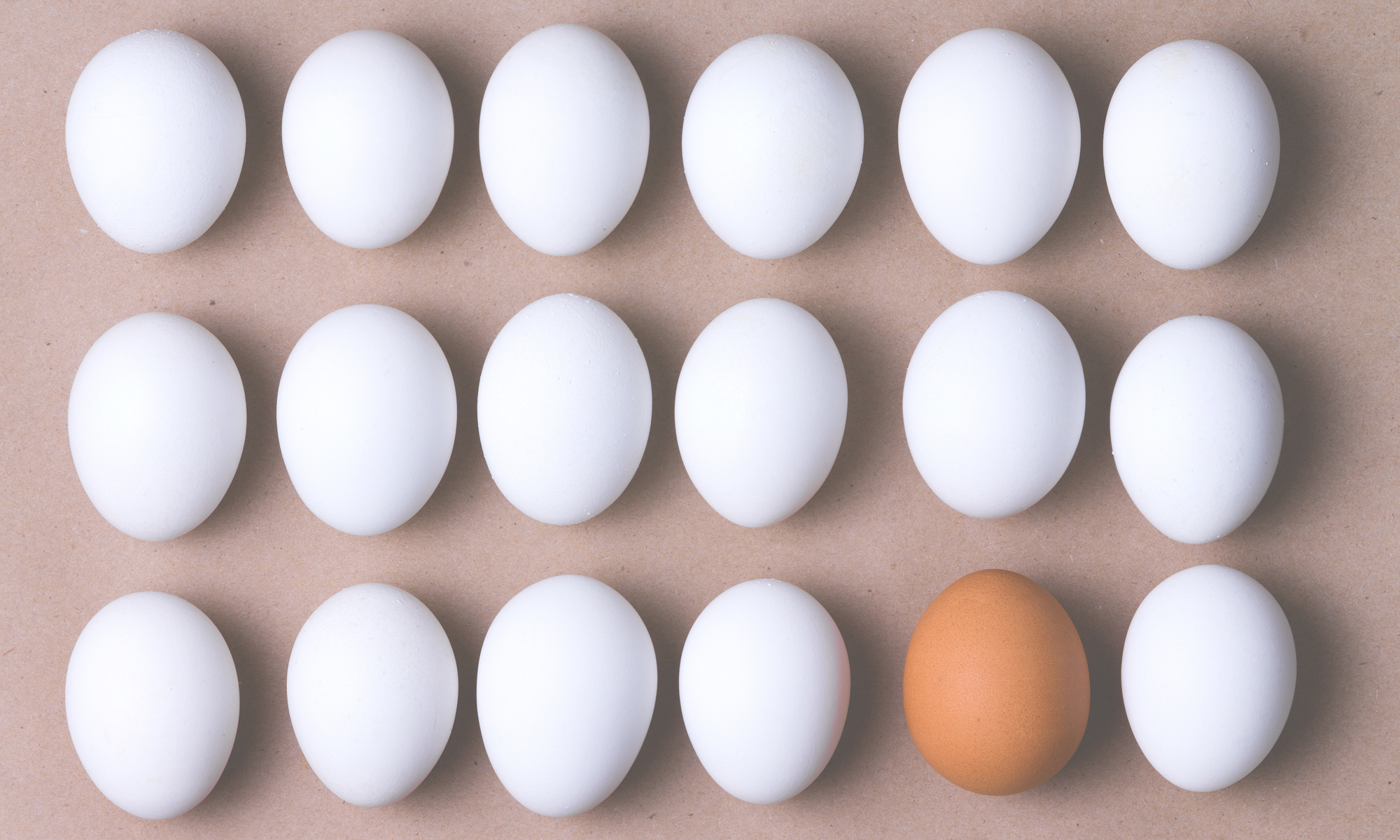Eggs have been villainized for decades due to their high cholesterol content, which was thought to pose a higher risk of heart disease. Let’s get down to the facts on why it’s not as simple as it has been portrayed.
BY: MASCHA DAVIS, MPH, RDN
Did you know that 70-80% of the cholesterol in our bodies is made by our liver and small intestine, rather than ingested from the food we eat? Dietary cholesterol has very little impact on increased cholesterol in the body, and eating eggs do not increase your cholesterol as much as refined carbohydrates, saturated fats, and trans fats do. It’s true, and what is interesting is that our liver actually produces more cholesterol when we eat foods high in saturated and trans fats.
That is why the most recent dietary guidelines and recommendations (which are revised every five years) remove the previous daily cholesterol limit of 300 mg. They do, however, add that “individuals should eat as little dietary cholesterol as possible” because “foods that are higher in dietary cholesterol, such as fatty meats and high-fat dairy products, are also higher in saturated fats.”
Eggs contain very little saturated fat and no trans fats, making them a perfectly nutritious source of protein for healthy individuals. However, those who have diabetes or existing heart disease are still cautioned to limit their egg consumption, especially if they are already consuming relatively high levels of saturated fat.
It gets a bad rap, but cholesterol is actually a wonderful nutrient that we all need – it’s an essential component of all cell membranes and is critical for producing hormones, like estrogen and testosterone, and Vitamin D. There are numerous types of cholesterol: the ones we often hear about are LDL (often called the ‘bad’ cholesterol) and HDL (the ‘good’ cholesterol). When blood concentrations of cholesterol (specifically LDLs) are too high, they are thought to promote atherosclerosis – hardening of the arteries – which can ultimately lead to a heart attack or stroke.
It used to be thought that eating foods high in cholesterol caused cholesterol levels in the body to rise, thus promoting atherosclerosis. This is a very simplified way of describing what is actually a very complex process. We now know that there’s a much more intricate mechanism where inflammation, saturated fat, and refined carbohydrates, together with cholesterol, all play a larger role. Saturated fat (mostly found in animal products and some tropical oils, including coconut) and refined carbohydrates drive inflammation, elevated LDLs, and ultimately, plaque development.
Inflammation is a broad term, but in this case, the type of inflammation we are referring to is a body’s chronic and underlying immune response that causes white blood cells called macrophages to act upon lipid fragments (which are LDLs) in the blood. These LDL-accumulated macrophages plays a role in developing the atherosclerotic plaques that form on arterial cell walls. Although cholesterol accumulation through the promotion of inflammatory responses likely has beneficial effects in the response to infections, it worsens disease and conditions that are associated with chronic metabolic inflammation, including atherosclerosis and obesity.
By better understanding the interplay between inflammation and cholesterol in heart disease, the focus now is not only on what we cannot eat, but what we can eat. Foods high in antioxidants become key because they help decrease and mitigate inflammation – thus promoting healthy arteries and a healthy heart. High-antioxidant foods like blueberries, blackberries, acai and goji berries are an excellent way to increase your intake. It’s also crucial to consume monounsaturated fats such as olive oil, avocado and nuts, as these healthy fats have been shown to reduce inflammation and lower cholesterol levels.
Another key nutrient to help lower ‘bad’ cholesterol levels is fiber, which actually binds to cholesterol and helps to excrete it from the body! Sources include fresh fruits and vegetables, brown rice, oatmeal, quinoa, chia seeds, beans and legumes. There is definitely no shortage of foods that you can fill up on to combat heart disease!
Mascha Davis, MPH, RDN is a Los Angeles-based private practice dietitian who shares her love of health and wellness through a unique global perspective. From world-class U.S. medical centers to rural villages in Africa, Mascha has dedicated herself to traveling the world, spreading her love of healthy living through both her humanitarian work and private practice. Learn more about Mascha at Nomadista Nutrition.

